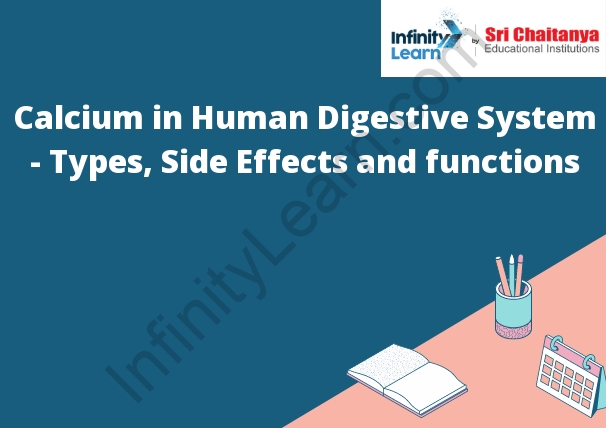Table of Contents
Calcium in Detail; Importance of Calcium in Body
Calcium is a mineral that is essential for human health. It is the most common mineral in the body, and is found in large amounts in bones and teeth. Calcium is also important for muscle contraction, nerve function, and blood clotting.
Calcium is absorbed from the small intestine into the bloodstream. The body uses it to build and maintain bones and teeth, and to support other essential functions.
People who do not get enough calcium in their diets may develop osteoporosis, a condition in which bones become weak and fragile. Symptoms of osteoporosis include back pain, fractures, and a curved spine.
People who eat a balanced diet that includes calcium-rich foods are less likely to develop osteoporosis. Good sources of calcium include dairy products, leafy green vegetables, and fortified foods.

Human Digestive System
The human digestive system is a series of organs that break down food into usable nutrients. The process begins with the ingestion of food, which is then broken down in the mouth by teeth and saliva. The food is then swallowed and passes through the esophagus and into the stomach. The stomach churns the food and breaks it down further. The food then passes into the small intestine, where the nutrients are absorbed into the bloodstream. The food then passes into the large intestine, where water is absorbed. The food is then expelled from the body as feces.
Bone Health
Bone health is the condition of the bones. Healthy bones are strong and dense, and they function optimally to support the body. Bone health is important for everyone, but it is especially important for older adults, because bones tend to weaken with age. There are a few things that everyone can do to maintain bone health, including eating a healthy diet, getting enough exercise, and avoiding smoking and excessive alcohol consumption.
Muscle Contraction
A muscle contracts when the myosin heads attach to the actin filaments and pull the filaments along the Z-lines. This shortens the muscle and causes it to contract.
Cardiovascular System
The cardiovascular system is a circulatory system that distributes blood throughout the body. It includes the heart, blood vessels, and blood. The heart is a muscular organ that pumps blood through the blood vessels. The blood vessels are tubes that carry blood to and from the heart. The blood is a fluid that contains red blood cells, white blood cells, and platelets.
Other Roles
The other roles that a project manager may have are business analyst, systems analyst, and quality assurance. A business analyst is responsible for understanding the business needs and translating them into system requirements. A systems analyst is responsible for understanding the system requirements and designing a system that meets those requirements. A quality assurance is responsible for ensuring that the system meets the requirements and is effective and efficient.
Calcium-rich Foods
Foods high in calcium include dairy products such as milk, yogurt, and cheese, as well as leafy green vegetables such as broccoli and kale. Calcium is essential for strong bones and teeth, and it also plays a role in muscle function and blood clotting.
Calcium Digestion
Calcium is a mineral that is necessary for life. It is the most abundant mineral in the body. Calcium is found in teeth and bones, and is necessary for their health. It is also important for muscle contraction, nerve function, and blood clotting.
The body cannot produce calcium, so it must be consumed in the diet. Dairy products are a good source of calcium, as are leafy green vegetables and nuts.
When calcium is consumed, it is digested in the stomach and small intestine. The calcium is then absorbed into the bloodstream, where it is transported to the bones and other tissues in the body.
Calcium Deficiency
A lack of calcium can cause muscle cramps, anxiety, and a lowered immune system.
Calcium Supplements:
Some people take calcium supplements to make up for the calcium they are not getting from their diets. Calcium is important for strong bones and teeth.
Types of Supplement
ation
There are three types of supplementation:
1. Oral supplementation
2. Injection supplementation
3. Topical supplementation
Risks of Supplements
There is no such thing as a risk-free activity. Even activities that are generally considered safe, such as walking, have some risks. The same is true for taking dietary supplements.
Some people may experience side effects from taking dietary supplements. These side effects can range from mild, such as a headache, to more serious, such as an allergic reaction.
People should always talk to their healthcare provider before starting to take any dietary supplements, to make sure the supplements are safe for them to take and that there are no interactions with any medications they are taking.
Side Effects:
Nausea, vomiting, diarrhea, constipation, abdominal pain, headache, dizziness, drowsiness, lightheadedness, ringing in the ears, trouble sleeping, increased sweating, changes in sex drive or ability, rash, itching.
Complications:
There are no specific complications associated with this surgery. However, any surgery has potential risks including infection, bleeding, and anesthesia complications.








